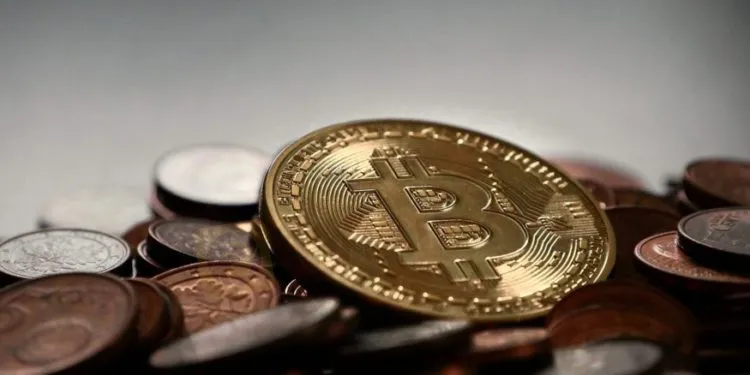简体中文
繁體中文
English
Pусский
日本語
ภาษาไทย
Tiếng Việt
Bahasa Indonesia
Español
हिन्दी
Filippiiniläinen
Français
Deutsch
Português
Türkçe
한국어
العربية
Cryptocurrency Vs Conventional Currencies
Abstract:Cryptocurrency are increasingly popular and are starting to receive recognition from various financial institutions. Just look at Visa, the world’s largest digital payment service provider. It stated that its long-term plan to use crypto currency as a means of payment.

ICDX Research & Development Manager Jericho Biere said the movement towards a cashless society was unavoidable. This encourages the global financial system to adapt to changes.
Crypto Capitalization Continues to Increase
One of these changes is the development of cryptocurrencies which are predicted to replace paper currencies. So dont be surprised if the market capitalization of crypto assets continues to climb.
In line with the development of cryptocurrencies, digital assets have started to appear with their respective functions and capacities. Jericho said this has led many countries to classify cryptocurrencies not as a means of payment but as an investment asset, so they are referred to as crypto assets.
According to him, although both can be used for payments, there are differences in issuance and operations between paper and crypto currencies. These two factors then affect the value of the two currencies.
“The most prominent difference between the two is decentralized issuance and operations with Blockchain technology on crypto assets, while fiat (physical) money is centralized or centralized. To understand this,” said Jericho.
Advantages of Cryptocurrencies: Inflation Resistant
By definition, fiat money is currency that is officially issued by a central bank like physical paper money and coins. Meanwhile, crypto assets, also known as digital or virtual currencies, are not regulated by a central bank or government.
Both act as a store of value, a medium of exchange, and a unit of account. Yet, the value of fiat currency can increase or decrease in the event of inflation or deflation.
This is different from crypto assets which are generally not affected by a country‘s inflation or deflation, unless the crypto asset is a stablecoin that is linked to a country’s currency.
“So it can be affected by economic indicators of the country concerned, including inflation or deflation rates,” he added.
Cryptocurrency: Immutable
From the supply side, the central bank can determine the physical currency in circulation depending on market needs, as well as carry out economic scenarios to regulate the circulation of the currency.
Excessive printing of physical currency by the central bank will make the value of the currency continue to fall, so it can make the prices of goods and services soar that is not in line with demand, especially during the current pandemic situation.
“Unlike crypto assets, coin issuers state that the number of crypto assets is limited or crypto assets are unlimited. In addition, the advantage of crypto assets is a coin burning mechanism to maintain the price and number of crypto assets when needed,” added Jericho.
He said crypto assets do not need a central bank. The value contained in crypto assets is private and operates independently. They work and run on a decentralized platform.
He also claims that crypto assets are safer than fiat money because crypto assets on the blockchain are immutable.

Disclaimer:
The views in this article only represent the author's personal views, and do not constitute investment advice on this platform. This platform does not guarantee the accuracy, completeness and timeliness of the information in the article, and will not be liable for any loss caused by the use of or reliance on the information in the article.
Read more

WikiFX Announcement: Suspension of Weekly Simulated Trading Competition
Since its launch in early 2023, the WikiFX Weekly Simulated Trading Competition has successfully hosted 99 consecutive rounds, attracting enthusiastic participation from traders worldwide and creating countless thrilling trading moments.

The president of @Liberland, @Vít Jedlička come on stage, dialogue on trading security.
The 2025 WikiEXPO Hong Kong Station is about to grandly open. the president of @Liberland, @Vít Jedlička come on stage, dialogue on trading security.

Countdown: 1 day.WikiEXPO2025's first stop, Hong Kong, is about to open.
⏰ Countdown: 1 day. WikiEXPO2025's first stop, Hong Kong, is just tomorrow. Focus on transaction security and explore new investment opportunities. ???? Get ready to start now. See you tomorrow.

What Can Forex Traders Learn from Ne Zha?
The animated blockbuster Ne Zha: Birth of the Demon Child tells the story of Ne Zha’s journey to defy fate and take control of his own destiny. Beyond being an inspiring tale filled with action and character growth, the film conveys profound life lessons - many of which resonate deeply with the world of forex trading.
WikiFX Broker
Latest News
Africa Cybercrime Bust: Over 300 Arrested in Fraud Crackdown
The Growing Threat of Fake Emails and Phishing Scams
Hong Kong Banks and Authorities Collaborate to Freeze Fraudulent Accounts Faster
SocialFi and the Forex Market: A New Era for Decentralized Social Trading?
Is Billion Bucks Fx Scam?
BaFin Halts USDe Token Issuance, Citing Serious Compliance Failures
The Rise and Risks of Forex Signal Apps: An In-Depth Analysis
Enlighten Securities Penalized $5 Million as SFC Uncovers Risk Control Failures
PH Telecom Offers Free App to Protect Users from Scams
How Scammers Stole $7Million | Why the U.S. is Giving It Back
Currency Calculator








